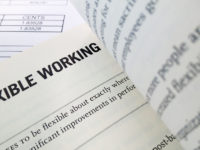We sought the feedback of key stakeholders in the small-business sector to last night’s Budget measures, and the overwhelming response was that SMEs were not given enough focused support.
Luke Achterstraat, CEO of COSBOA said that the extension of existing measures – the Instant Asset Write-off, NewAccess for Small Business Support, the Small Business Debt Helpline, Productivity, Education and Training Program, as well as Energy Bill Relief – are necessary but not sufficient to truly address the issues currently facing small business.
“Whilst some measures are welcome, small business has been left behind in the government’s strategy of picking winners and providing subsidies to selected industries,” Achterstraat said. “Small businesses face a complex operating environment, and this Budget provides little for a current source of optimism.”
Anthony Drury, Managing Director for ANZ at Xero, welcomed the instant asset write off extension and energy rebate, which he said will provide much needed cashflow support for small businesses.
“However, more needs to be done to drive productivity amongst Australia’s small-business sector,” Drury said. “Xero’s latest report shows there has been a distinct slowdown in productivity over the past year, likely due to softer sales performance and a tight labour market. We also know from a recent survey that small businesses want to see more support from the Government to improve productivity, more access to capital and greater investment in technology.”
Chris Dahl, Co-CEO of Pin Payments, bemoaned the fact that Australia’s start-up sector was largely overlooked in this year’s budget, with the cost-of-living crisis overshadowing innovation or growth.
“There was no mention of the previous Boosting Female Founders (BFF) or any other start-up funding or support,” Dahl said. “This is disappointing given the minimal support and funding currently available for female founders in Australia.”
And CEO of non-bank SME lender Banjo Loans, Guy Callaghan, said that the budget measures fall well short of what the SME sector needs as it grapples with high inflation, high interest rates and falling demand across many sectors.
“When will the Federal Government wake up and finally provide the support that small business needs?”, Callaghan asked. “There are initiatives in this budget for big business, but the engine room of the Australian economy is small business and they’ve once again been overlooked in favour of easy headlines at the top end of town.
“While we welcome the continuation of the instant asset write-off, we hope that it’s finalised quicker than the extension announced this time last year, which is still languishing in Parliament,” Callaghan added.
Energy prices
“Small and family businesses facing punishing input costs that are squeezing margins will welcome the modest energy bill relief of $325,” Australian Small Business and Family Enterprise Ombudsman (ASBFEO), Bruce Billson, said. “Every saving helps the small businesses who are doing it tough in our community.
“Matching last year’s Budget, the money will be deducted from the power bills of one million eligible small businesses as part of a cost-of-living relief package,” Billson added.
Daniel Stoten, Chairman at Localsearch described the Budget as “a good start” but lamented the fact that he sees the Mum-and-Dad businesses that keep the heart of Australia’s local economies beating as having been completely overlooked.
“The extension of the Energy Bill Relief Fund – giving one million small businesses $325 to help pay their energy bills – is a great example of helping SMEs to reduce costs,” Stoten said. “But, it only supports roughly 38 per cent of [the] 2.6 million small businesses which make up 97 per cent of all businesses in Australia.”
General Manager of SME at MYOB, Emma Fawcett, said that the Federal Budget also included a number of measures designed to support the productivity and growth of Australian SMEs.
“Our latest MYOB Business Monitor research shows measures that relieve cost-of-living pressures were the number one item SMEs wanted in the Budget, and measures like the energy and tax relief will be welcomed,” Fawcett said. “The Energy Bill Relief Fund and confirmed tax cuts will be welcome news for both the average Australian and SMEs; consumer research commissioned by MYOB found cost-of-living is impacting 56 per cent of Australians. Sixty-five per cent said they’re spending less on meals out or food delivery and 62 per cent are spending less on entertainment.
“Small businesses are feeling the impact of cost-of-living on two fronts: their customers are spending less with them and the cost of doing business is growing,” Fawcett added. “More money in the hip pockets of all Australians means more will flow through to small businesses and help them drive Australia’s economic recovery.”
Instant asset write-off
“Small and family businesses will be relieved by the decision to extend the instant asset write-off for a further 12 months for businesses with a turnover of up to $10 million, allowing them to deduct $20,000 for eligible assets,” Billson said.
“But we note the instant asset write-off measure announced in last year’s budget has still not been passed into law with just six weeks left of this financial year, creating some uncertainty for small businesses, the Ombudsman added. “This uncertainty has highlighted the benefits of greater predictability to support business planning and investment, reflected by small business groups calling for it to be made permanent.”
Mental health
“Particularly important is the $7.7 million over two years to extend the funding for mental health support through the New Access for Small Business Owners program created by Beyond Blue and $3.1 million over two years for the Small Business Debt Hotline delivered by Financial Counselling Australia,” Billson said.
Luke Fossett, General Manager ANZ, GoCardless described the the government’s continued support for mental health and financial counselling services as a “vital lifeline for many small-business owners”, as the connection between late payments and the stress and genuine fear of business failure at critical stages is significant.
“Our latest research reveals that over half (55 per cent) of Australian business leaders anticipate a rise in late payments due to the escalating cost of doing business,” Fossett warned.















